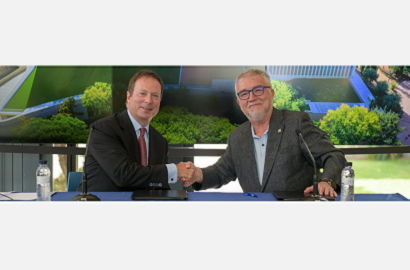Lenovo strengthens collaboration with Barcelona Supercomputing Center

The company will invest 7 million euros, its largest R&D investment in Spain to date
Chinese technology multinational Lenovo and the Barcelona Supercomputing Center-Centro Nacional de Supercomputación (BSC-CNS) have taken another step forward in their partnership to strengthen R&D in supercomputing technology. Following six years of collaboration, the Chinese company will invest 7 million euros over the next three years to develop research in three priority areas: precision medicine, the design and development of European open source chips (RISC-V type) and the creation of more supercomputers and energy-sustainable data centres.
This is Lenovo's largest investment to date in Spain. The objectives pursued by its alliance with the BSC-CNS coincide with some of the main technological objectives for both Spain and the European Commission in the application of high-performance computing, such as personalised medicine, European autonomy in chip design and energy efficiency in supercomputers and data centres.
Genomic analysis algorithms
Efficient analysis of large-scale genomic data will be key to the advancement of precision medicine and the generation of new treatments for diseases such as cancer. The BSC-CNS team led by researcher Miquel Moretó will study genomic analysis algorithms to design new accelerators that will be integrated into the HPC (high performance computing) platforms of the future and that will serve to improve the efficiency of these highly sophisticated analyses.
With regard to the need for supercomputers, experts are faced with a curb on their development, which is their demand for electricity consumption of some 25 megawatts, equivalent to that of a medium-sized city. The joint research between BSC-CNS and Lenovo, led by researcher Julita Corbalán, will seek to build more energy-efficient, sustainable and lower-cost supercomputers and data centres.
Boosting competitiveness
As far as chips are concerned, European law, together with the Spanish government's Strategic Project for Economic Recovery and Transformation (PERTE), aims to boost Europe's competitiveness in semiconductor technologies and applications and help achieve both digital and sustainable transformation. The EU's goal is to double its market share to 20% worldwide by 2030.
The European Laboratory for Open Computing Architecture (LOCA), which launched the BSC in 2019, is working on designing and developing chip technology based on open source architecture (RISC-V). Led by researcher John D. Davis, it collaborates with companies, foundations and academic institutions to create devices that guarantee transparency, competitiveness and technological autonomy. Now, the BSC has announced the creation of another similar lab in collaboration with Intel.
Significant returns
BSC-CNS Director, Mateo Valero, said, "I am very proud of this important collaboration with Lenovo as we continue our long-standing work together in addressing the great challenges of this priority research, in line with the agendas of the European Commission and Spain. This research collaboration will generate significant returns for the region, not only human and scientific ones, but also technological and economic returns.”
Director of EMEA, HPC and AI at Lenovo, Noam Rosen, explained, "Our shared goal is to embrace open architecture to support scientists and researchers with smarter, more efficient and sustainable supercomputing platforms. This agreement and our investment contribution are just the latest examples of Lenovo's continued commitment to Europe, joining our new manufacturing plant in Hungary and the AI Innovation Centre in Germany. Lenovo is passionate about helping BSC researchers solve humanity's greatest challenges and it is proud to support BSC's leadership in driving European innovation in HPC.”
Photo: BSC
(Lenovo Executive Vice President and President of Lenovo Infrastructure Solutions Group, Kirk Skaugen, and BSC-CNS Director, Mateo Valero, at the signing of the agreement).




